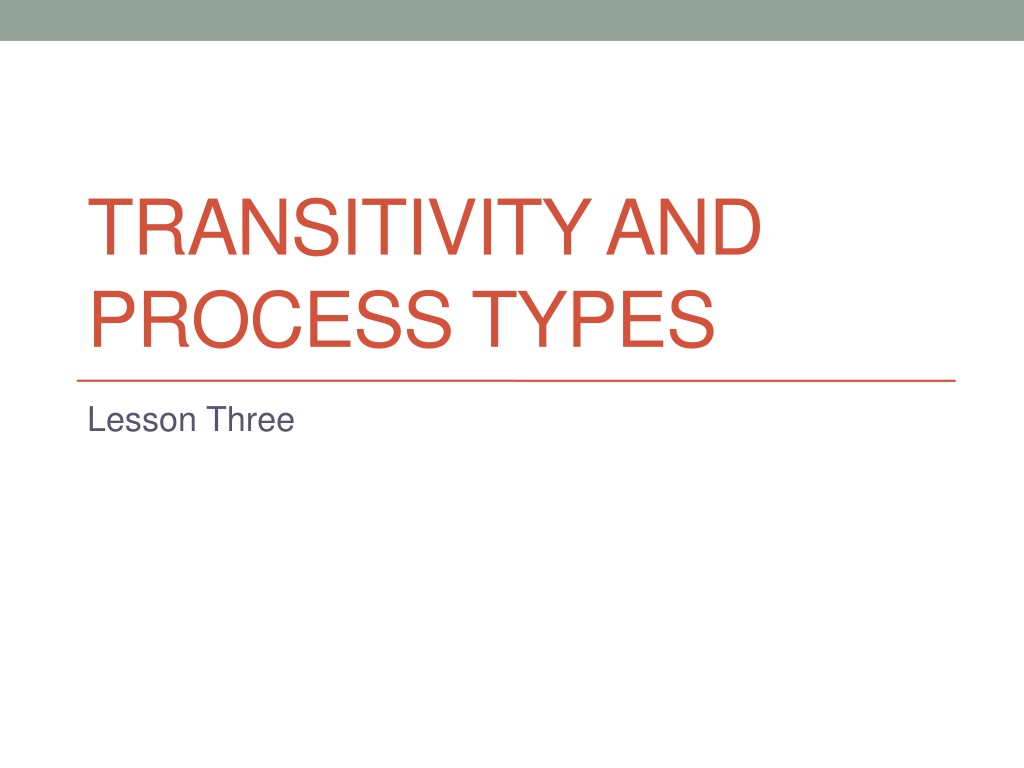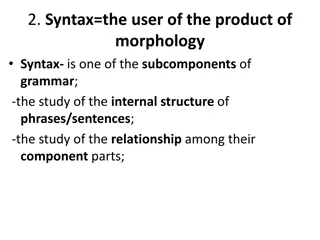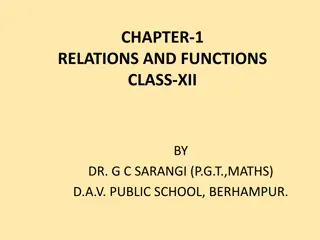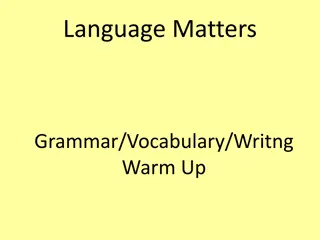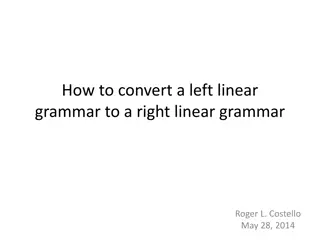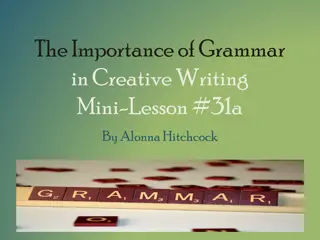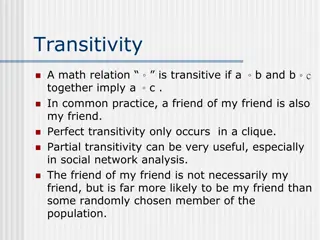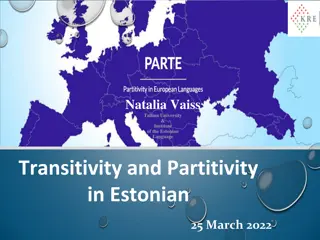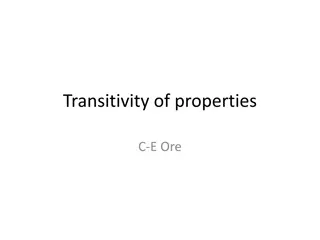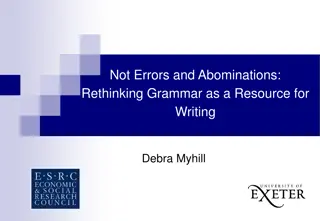Understanding Transitivity System in Grammar
The transitivity system in grammar helps speakers and writers convey ideational meaning by encoding their experiences of the world around them through participants, processes, and circumstances. This system categorizes participants as animate or inanimate, processes as material, mental, relational, verbal, behavioral, or existential, and circumstances providing details like location, manner, and cause. Examples illustrate how participants, processes, and circumstances interact, showcasing the diversity and flexibility of the transitivity system in communication.
Download Presentation

Please find below an Image/Link to download the presentation.
The content on the website is provided AS IS for your information and personal use only. It may not be sold, licensed, or shared on other websites without obtaining consent from the author. Download presentation by click this link. If you encounter any issues during the download, it is possible that the publisher has removed the file from their server.
E N D
Presentation Transcript
TRANSITIVITYAND PROCESS TYPES Lesson Three
The transitivity system The transitivity system is that system of grammar in and by which speakers/writers realize ideational meaning, in and by which they encode their experiences of the world around them. Participants Processes Circumstances Endless possibilities and choices.
Participants Process Circumstances Participants can be animate or inanimate. They can be the subject, object, indirect object. Circumstances tell us about location, manner, cause, etc. Processes represented by verbs
Circumstances Police shoot 11 dead in Salisbury riot. The USA, unlike Italy, is a federation of states. Many people survived thanks to the courage of the fire- fighters. Morgana waited on line with David for hours. She was travelling as a tourist. Rooney scored a goal in both games.
Examples I know one participant, one process I made her take a train three participants, two processes Martin quickly shook hands with John outside the railway station two participants, one process, two circumstances
Process Types Process types tell us what kind of action is going on, or if any action is going on. Material processes Mental processes Relational processes Verbal processes Behavioural processes Existential processes
Material processes Material processes construct what is happening or being done in the world What did X do?
Mental processes Mental processes construct what takes place in the inner world. Eg. She cares . So thinking, feeling, liking, seeing, hearing, etc. I hate spinach They heard the sirens The thought it was true
Relational processes Meanings of being, essentially the verbs to be and to have . But also eg. become, appear, seem, She s my best friend The hotel has a swimming pool The traffic is heavy at 5.00pm He s become intolerable It seems to be the case
Identifying and attributive Identifying relational processes x = y and y = x eg. The woman in the red dress is the Dean of the Faculty Attributive relational processes The Dean of the Faculty is an excellent piano player
Process types Diana gave some blood (material) Diana thought she should give blood (mental) Diana is a blood donor (relational) Diana said that giving blood was easy (verbal) Diana dreamt of giving blood (behavioural) There is a reward for giving blood (existential)
Identify the process types Diana went to New York. There were huge lines of people at the Red Cross Centre. She felt lonely. Diana donated blood. Her blood was tested immediately. Diana was one of thousands of donors. I heard an ambulance in the street. I told the driver to hurry. I watched the doctor perfrom
Units of meaning Units of meaning (Sinclair) We do not interpret word for word but unit for unit. What do you mean you haven t time! Lexical chunks How are you? Thanks a million
